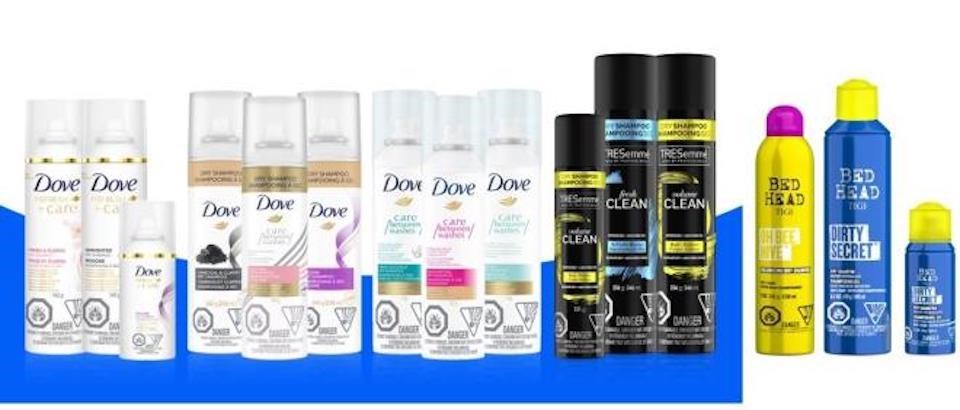Health Canada says it has received over 100 reports from consumers related to a recall of dry shampoos due to the presence of a chemical hazard.
The federal health department issued the initial on Oct. 18 for several batches of Bed Head TIGI, Dove, and Tresemmé Dry Shampoo products due to the "detection of benzene."
Between January 2020 and October 2022, the company, Unilever, sold 1,574,426 of the affected products in Canada. As of Oct. 7, it hadn't received any report(s) of incidents or injuries.
- Related: Dry shampoo products that were included in Canada-wide recall due to chemical hazard
Following the public health notification, over 100 people reported incidents related to the dry shampoo products in question. So far, the main injuries have been irritations and allergic reactions, Health Canada told Vancouver Is Awesome in a statement.
But not all of the reports include injuries; some consumers simply had questions about the recall.
Due to reports still incoming, the total number of reports and the analysis of types of injury are ongoing, added Health Canada.
"Unilever brought to Health Canada’s attention this issue and the Department published the recall so that Canadians could take immediate action to protect themselves."
Health Canada encourages consumers who are concerned about their health to speak to their healthcare provider.

Canada-wide recall for various dry shampoo products
Consumers should stop using and appropriately discard the recalled aerosol spray products, and contact the company for reimbursement.
Health Canada notes that benzene is a "human carcinogen" and exposure to the chemical can occur by inhalation, orally, and through the skin. Exposure may lead to cancers including leukemia and blood cancer of the bone marrow, as well as life-threatening blood disorders. However, exposure modelling and risk assessments conducted by the Environmental Protection Agency (EPA) find that daily exposure from the recalled products isn't expected "to cause adverse health consequences."
Consumers can visit UnileverRecall.com for more information on the affected products and receive reimbursement. If consumers have further questions, they can also seek more information via the Consumer Care team at 1-(877) 270-7412 from Monday to Friday from 8:30 a.m. to 9:00 p.m. (EST).




